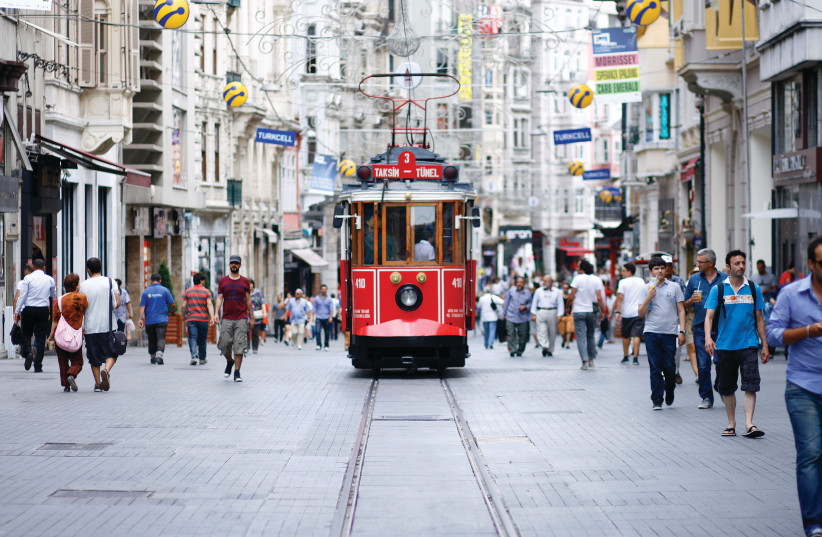Sunday’s explosion in Istanbul appeared at first to be a terrorist act but questions linger in the aftermath of the blast and it remains unclear what has happened. The explosion took place on busy Istiklal Street, a few hundred meters from Taksim Square.
Turkey’s media, which in the past has been quick to identify culprits in these situations, was careful not to call the explosion terrorism. But Turkish state media TRT said that based on information from the governor of Istanbul, the incident may be an act of terrorism.
It has been many years since a major terror attack took place in Turkey. In 2016, a bombing in Ankara left 37 dead and a suicide bomber targeted a Kurdish wedding in Gaziantep, killing 57. An attack by ISIS also targeted Kurds and left-wing activists in Suruc in 2015, killing 33.
Back in 2013 there were car bombings in Reyhanli on the border with Syria. In 2003, synagogues in Turkey were targeted.
Turkey has often blamed the Kurdistan Workers Party (PKK) or ISIS for terrorist acts on its soil, and has also blamed the PKK for forest fires.

The lack of reporting in Turkish pro-government media on Sunday evening illustrates how Turkey is processing this incident. It’s not clear if the “blast” or “explosion,” as most media label the incident, is a terrorist attack.
Social media sites have reportedly been restricted in Turkey in the wake of the blast. In addition, it appears that authorities are trying to prevent civilian documentation and the dissemination of information.
This could be a way for the government to try to control the investigation. However, it is unclear what rumors the government is actually worried about.
Initial video footage from the site of the attack appeared to show a bag suspiciously left near a planter in the middle of a busy street full of tourists. Some claimed to identify a suspicious woman in a frame of footage before the attack.
Details after the explosion, filmed by people at the scene and from above, as well as leaked security video, show several casualties.
Turkey’s right-wing nationalist media, which is pro-government, also seemed to refrain from postulating on the culprits behind the attack.
What is different about this coverage?
Rather than the usual talking points that blame either ISIS or the PKK, major media such as Yeni Safak have been very circumspect in their reporting. In addition, Turkish media and other official sites all spoke of an “explosion” rather than a terror attack in both their initial responses and their condolences afterwards.
The threat of terror in the Middle East had seemed to diminish in the past year and this incident will raise concerns about security in the region. The area of the explosion is a popular shopping one and is often crowded.
It will also raise concerns about security at major events in the region, such as the World Cup. Turkish authorities will have to determine what caused the explosion, and if they say it is terrorism then the question will be who carried it out.
Even if the Turkish authorities make a determination, not everyone will necessarily accept the authorities’ version. This is because Ankara has a history of labeling culprits to exploit incidents for its own ends in the region.
Turkey may want to downplay the explosion, which will also lead to questions. Clamping down on media reports and social media will encourage more rumors than if no crackdown had been enforced.
